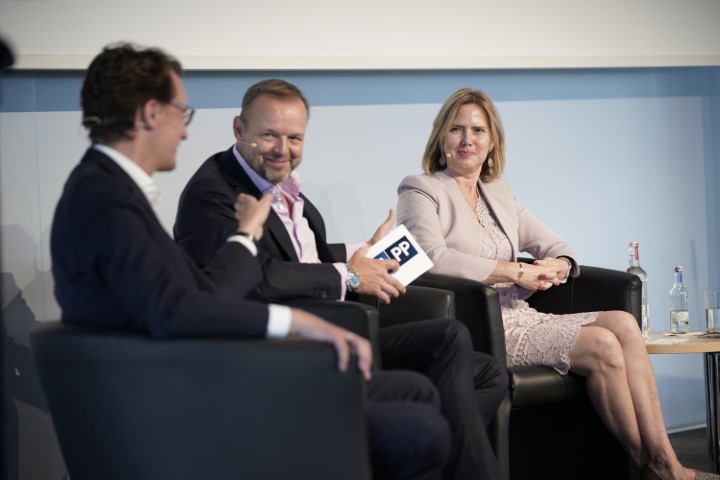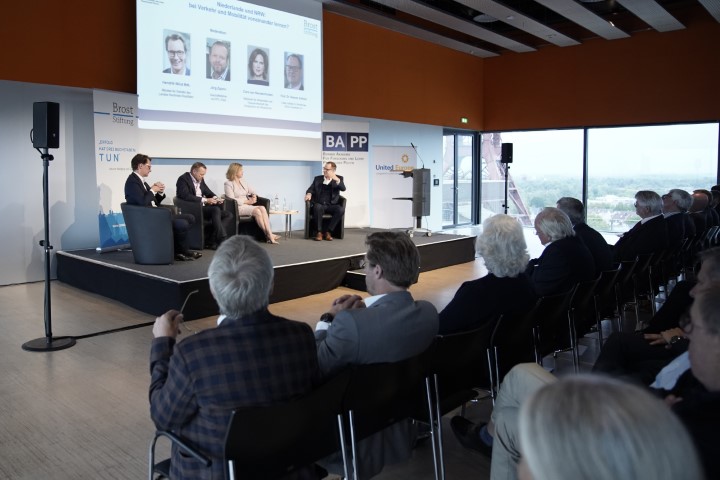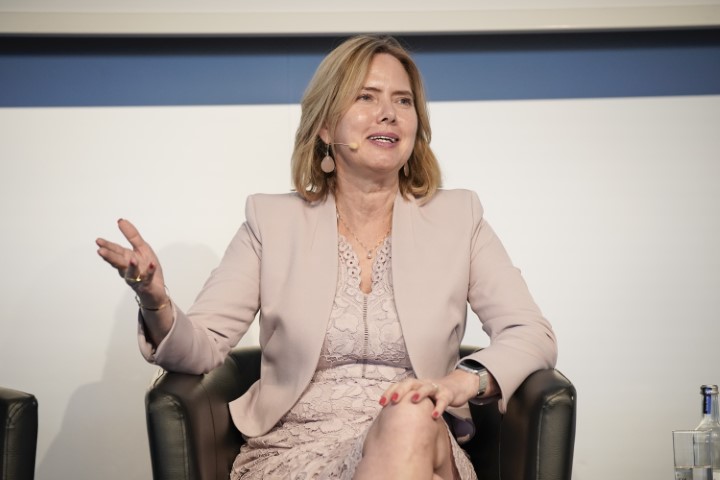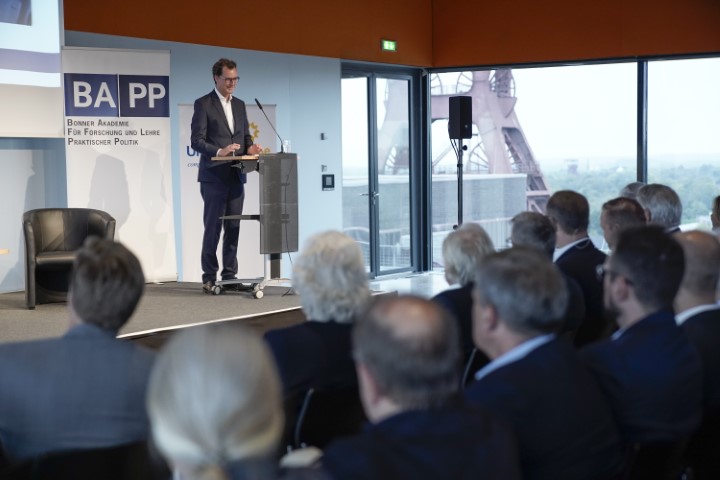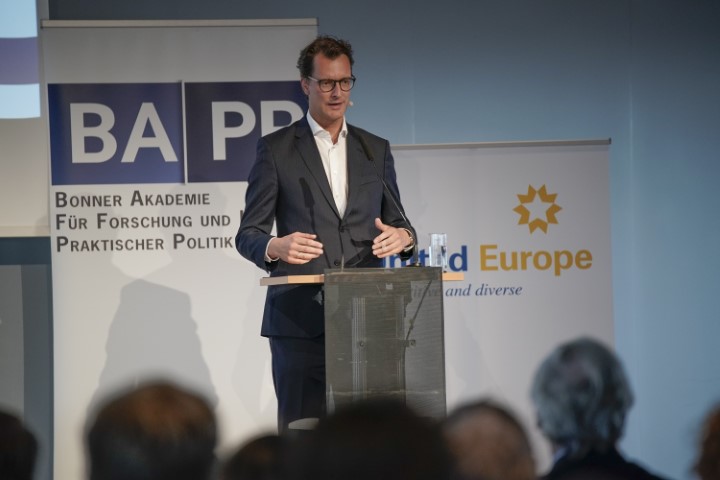United Europe has partnered a panel discussion at the Bonn Acadamey for Research and Teaching of Practical Politics (BAPP) devoted on the question “The Netherlands and NRW: Learning from each other in transport and mobility?” on 3 September.
Hendrik Wüst, MdL, Minister for Transport of North Rhine-Westphalia, Cora van Nieuwenhuizen, Minister for Infrastructure and Water Management of the Kingdom of the Netherlands, and Prof. Dr. Roman Suthold, Head of Transport and Environment of ADAC Nordrhein e.V. Jörg Zajonc, Managing Director of RTL West, chaired the panel discussion. The event took place at the Zollverein colliery in Essen, an icon of the economic miracle, as the Dutch minister noted in her opening statement.
The evening was welcomed by Prof. Bodo Hombach, President of the Bonn Academy. He illustrated the relevance of the cooperation between the Netherlands and North Rhine-Westphalia on the basis of the 400 km long divided border, which today is less to be understood as such than as a place of transition and exchange.
The opening statement by Minister Cora van Nieuwenhuizen followed on from this. She referred to the joint declaration of intent of the kingdom and the most populous German federal state of 2018. In his opening statement, Minister Hendrik Wüst praised the Dutch partner. In many respects, the Netherlands is a role model in the areas of infrastructure and mobility, for example when it comes to taking traffic flow into account in its construction site management.
Jörg Zajonc, Managing Director of RTL West, opened the panel discussion by asking what the Dutch had in front of the Germans. Van Nieuwenhuizen replied that the many conurbations in the Netherlands are a good prerequisite for a good infrastructure. In addition, the exemplary water management is due to the fact that a large part of the country is below sea level and that the associated challenges have to be met.
Prof. Dr. Roman Suthold, on the other hand, diagnosed that transport policy in Germany had been ideologised for decades. The resulting problem of knowledge has now given way to a problem of implementation. In the meantime, a political objectification of the topic has taken place, Minister Hendrik Wüst also said. This was to be seen as a great opportunity, one could now approach the pragmatic approach of the Dutch neighbour. At the moment, for example, special investments are being made in shortening construction site times.
The Conclusio was held by Dirk Brengelmann, Ambassador of the Federal Republic of Germany to the Kingdom of the Netherlands. The event had shown how close German-Dutch relations are today – not only in the area of transport and mobility. In the areas of foreign policy, security and defence, EU policy, climate, economy and trade as well as culture, the relationship is also based on trusting cooperation.




